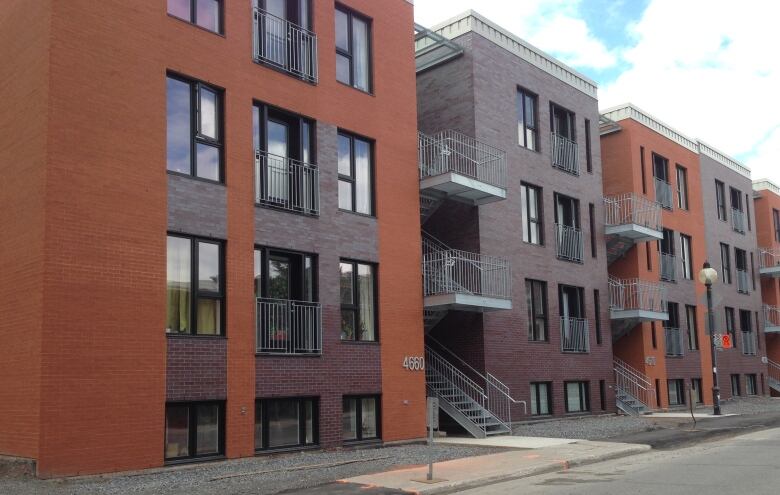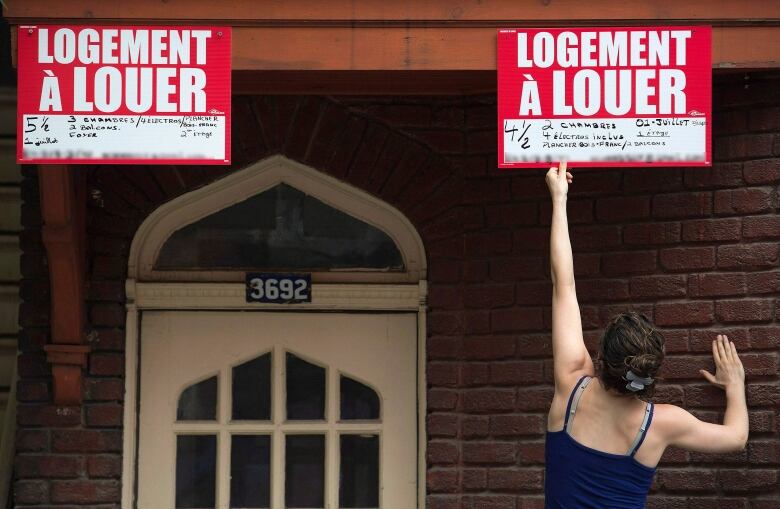Montreal aims to boost affordable housing as rental market tightens
Proposed rules are designed to make living in the city easier, but developers have concerns

The City of Montreal's newhousing rules will compeldevelopers to build social and affordable housing, or contribute to a fund that will finance social housing if they don't.
The regulations were adopted by the city's executive committee Wednesday. Mayor Valrie Plante wants the rules, which still need to be approved by council and go through a public consultation,to be in effect by Jan.1, 2021.
"We're going to create [many]more options forMontrealers,"Plantesaid.
The bylaw generally requires contractors to enter into an agreement with the city whereby they:
- commit to contributing a certain number of affordable and social housing units.
- commit to building family housing (three-bedroom units) in their projects.
- give land to the city for social housing.
- make a financial contribution to a fund that would finance social and community housing.
The rules will apply toresidential projects offive units or more.
Buildings with between five and 49 units won't be forced to build the affordable and family units. But if they don't, they will haveto contribute to the fund.
How it would work
The number of units designated as social, affordable or familyhousing dependson the neighbourhood and the total number of units being built.
For example, to qualify for a permit to build 50 or more units downtown, a contractor would have to also agree to build social housing,such as co-operativesand rent-subsidized apartments, equal to 20 per centof the livable space of their building or make a financial contribution.
They would also have to build affordable housing equal to between 10 and 15 per centof the number of units they're building or make a financial contribution, and build family housing equal to five per centof the units in the project.
What counts as affordable depends on the type of dwelling, and where it is located. For example, a studio apartment built at the extremity of the island would be considered affordable with a monthly rent of $585 or less, while a downtown apartment with three bedrooms or more would need to cost less than $2,000 per month to qualify.
The proposal falls short ofPlante'selectionpromise.
During the 2017 municipal campaign,ProjetMontralpledged to force developers to include 20 per cent of family housing units in projects of 40 units or more. These new rules favour a case-by-case approach rather than a quota for all large residential projects.

The Plante administration's initiative comes amid a housing crunch in the city.
Driven by increased demand and rising real estate prices, Montreal's rental market has become increasingly competitive, leaving low-income families especially vulnerable.
The vacancy rate in the Montreal areadroppedto 1.9 per cent in 2018, compared to 2.8 per cent a year earlier. The shortage is particularly acute for three-bedroom apartments the rate in 2018 was 0.8 per cent.
"We're not in a crisis, it's not an easy time, but we thought it would be worse,"Plantesaid.
Concern over housing supply
Despite concerns raised by developers,Plantesaid she doesn't think the rules will deter promoters from building in Montreal, because the city "is where people want to invest."
But Lionel Perez, the opposition leader at city hall,said he believes the bylaw will do more harm than good.
In a statement, he said he believes the bylaw will lead to higher home prices in Montreal, in turn forcing families to move to the suburbs.
The Chamber of Commerce of Metropolitan Montreal said that it supports keeping homes affordable for families on the island, but it also raised concerns that making residential development more expensive could put even more pressure on the housing supply.
"The vacancy rate is already very low, and any slowdown in housing starts will amplify the effect of housing scarcity and stimulate further price increases," said the chamber's president, Michel Leblanc, in a statement.

ClineMagontier, spokesperson for social housing advocacy groupFRAPRU, criticized what she called the city's lack of political will and ambition to take ondevelopers.
The city, she said, is waiting too long to implement the bylaw when real estate speculation is a problem right now.
YoussefBenzouine, community organizer with Project Genesis, said his biggest problem with the bylaw is the option for developers to make a financial contribution instead of diversifying their offering.
He pointed to the construction in the Triangle, a neighbourhood inCte-des-Neiges, where he said in many situations, developers chose to pay rather than build social housing.
"We saw that [financial compensation] is one of the loopholes of this kind of strategy," he said.
"It's better than nothing, but at the same time, it's not enough."
With files from Jaela Bernstien and Radio-Canada's Jrme Labb












_(720p).jpg)


 OFFICIAL HD MUSIC VIDEO.jpg)
.jpg)



























































































